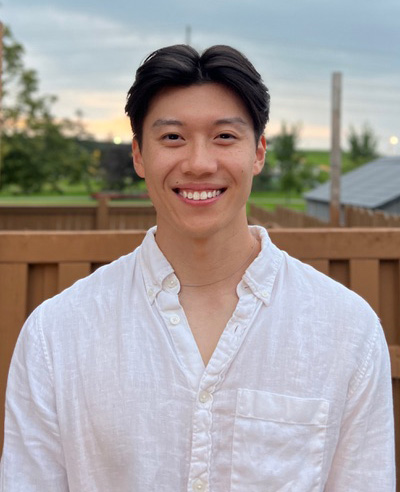1. Who are you? Tell us about yourself.
My name is Liam Ratushny. I am an MSc candidate in the Department of Pathology and Laboratory Medicine at Western University. I’m currently working in the lab of Dr. Fred Dick at the London Regional Cancer Program. Before beginning my graduate studies, I completed my BSc at the University of Guelph with an honours specialization in Biomedical Toxicology.
2. Why is the TBCRU Studentship Award important to you?
I’m honoured to be a recipient of this award! This Studentship helps us fund critical lab resources for my work and helps to continue advancements in research. This award also helps me connect with other studentship recipients and creates exciting new opportunities to learn from other researchers.
3. Tell us about your research. What are you doing and what problems do you hope to solve?
One innovative treatment that has shown promise is a class of cancer drugs called Cdk4/6 inhibitors. This drug has been used alongside hormonal therapies in patients with advanced breast cancers. Unfortunately, patients can develop resistance to these drugs. We aim to screen breast cancer cells to see how they react to these drugs and use the information to help breast cancer cells respond positively to these drugs, rather than resisting them.
4. Why is your research important? How can your research be applied in the real world?
We hope that our research will help predict the resistance or effectiveness of Cdk4/6 inhibitors in breast cancer patients. Breast cancer cells can adapt and resist drug therapies, which negatively impacts effective treatment. The ability to deliver effective treatment to a patient is of the utmost importance. By predicting how breast cancer cells react, patients can be screened before treatment and receive a unique treatment plan that works best for them.
5. What inspired your research?
My research was inspired by previous work in our lab on the various ways a tumour protein called retinoblastoma (RB) maintains controls the growth of cancer cells. It was discovered that this protein interacts with many more cell mechanisms than we initially thought. Cdk4/6 inhibitors depend on reactivating RB. Meaning, the more we know about the RB protein, the more we can learn how cancer cells develop resistance to these inhibitors. This could potentially help predict a patient’s response to treatment.
6. Why are you passionate about breast cancer research?
I have had a passion for science for as long as I can remember, but I decided on cancer research in high school. It was during this time that a benign tumour was discovered in my left eye. Over the next five years, I underwent many surgeries, treatments and experienced the process of a cancer clinic first-hand. I ultimately lost the vision in my eye. Still, my doctors used all the research they had available to save my sight and remove the tumour entirely. Witnessing clinicians’ tireless work and how they depend on research to understand cancer development inspired my drive to do all I can to contribute to this research and maybe, one day, repay all that was done for me in my time of need.
7. Why do you think breast cancer research matters?
Breast cancer remains a significant issue in Canada, accounting for approximately 25% of all new cancer diagnoses in 2019. I have learned that breast cancer’s impact extends far beyond the financial and clinical ramifications from my time at the London Regional Cancer Program. Every day, I see the joys of being cured as well as the moments of heartbreaking diagnosis. This shows just how urgent advancements in breast cancer research are needed.
8. What excites you about your work?
The most exciting part of my work is the potential to improve cancer patients’ outcomes in the future. By modelling the changes to cell cycle control arising from resistance, we can find predictive biomarkers for treatment efficiency. I am hopeful either myself or others will be able to utilize these findings to help improve treatment for patients.
9. What do you see yourself doing in the future?
I genuinely have found a home in the world of research and plan on transferring to our department’s Ph.D. program, so I can continue working on my project more in-depth. I hope to continue participating in cancer research and contribute all that I can to this field and improve patient treatment.
10. What do you like to do when you are not working on research?
Outside the lab, I love indulging my passion for hockey and the outdoors! I always try to hit the ice whenever I get the chance, either as a player or a volunteer coach. I am also a passionate outdoorsman from my time in Scouts Canada, and love camping and exploring nature.
SUPPORT RESEARCHERS LIKE LIAM RATUSHNY BY CONSIDERING A DONATION TO THE BREAST CANCER SOCIETY OF CANADA. FIND OUT HOW YOU CAN HELP FUND LIFE-SAVING RESEARCH, VISIT BCSC.CA/DONATE TODAY.




